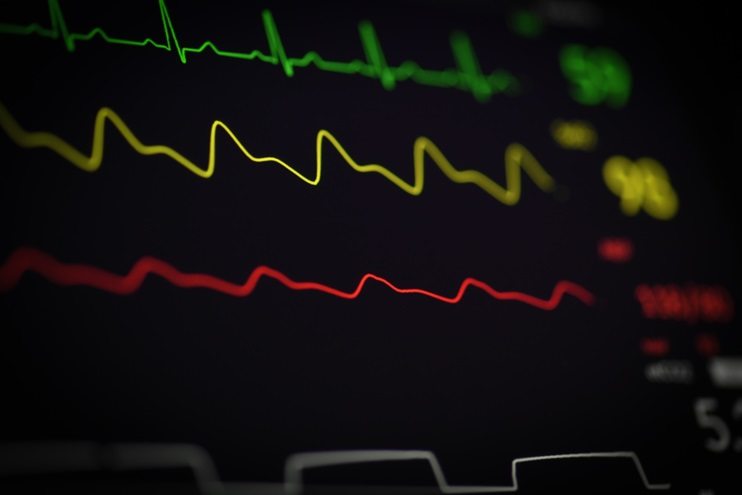Heart murmurs are sounds during your heartbeat cycle made by turbulent blood in or near your heart. These sounds can be heard with a stethoscope and are sometimes harmless (innocent murmurs) or indicative of underlying heart problems (pathologic murmurs). On the other hand, arrhythmia refers to any irregularity in the heart’s rhythm, including beats that are too fast, too slow, or erratic. Given the complex interplay between different heart conditions, it is crucial to explore whether heart murmurs can cause arrhythmia.
What Is Heart Murmurs?
Heart murmurs are essentially the sound of blood flow turbulence across the heart valves. This turbulence can be caused by various factors:
Innocent (or functional) murmurs: These are common in children and are usually harmless. They often result from rapid blood flow through the heart during periods of high cardiac output.
Pathologic murmurs: These are due to structural abnormalities in the heart, such as valve defects, congenital heart defects, or acquired conditions like endocarditis or rheumatic heart disease.
The underlying causes of pathologic murmurs often require medical evaluation to determine the extent and severity of the heart condition.
SEE ALSO: What Should You Not Do With an Irregular Heartbeat
Types of Heart Murmurs
Heart murmurs are classified based on their timing in the cardiac cycle:
Systolic murmurs: Occur during heart muscle contraction.
Diastolic murmurs: Occur during heart muscle relaxation between beats.
Continuous murmurs: Occur throughout the cardiac cycle.
The characteristics of the murmur, such as pitch, loudness, and duration, along with accompanying symptoms, help in diagnosing the specific cause.
Understanding Arrhythmias
Arrhythmias are disruptions in the normal heart rhythm, which can be categorized as follows:
Bradycardia: Slow heart rate.
Tachycardia: Fast heart rate.
Fibrillation: Erratic heart rate.
Premature contractions: Early heartbeats.
Arrhythmias can originate from various parts of the heart, including the atria, ventricles, or the nodes and conduction pathways responsible for generating and transmitting electrical impulses.
The Connection Between Heart Murmurs And Arrhythmia
Structural Abnormalities and Arrhythmias
Pathologic heart murmurs often indicate underlying structural heart issues, which can predispose individuals to arrhythmias. For instance, conditions such as:
Mitral valve prolapse (MVP): This is a common cause of heart murmurs and can lead to arrhythmias. MVP can cause the mitral valve to fail to close properly, leading to regurgitation, which can stretch and strain the atrium, causing atrial arrhythmias.
Aortic stenosis: Narrowing of the aortic valve can lead to left ventricular hypertrophy, a condition where the heart muscle thickens, potentially disrupting the normal electrical pathways and leading to arrhythmias.
Congenital heart defects: These can create turbulent blood flow leading to murmurs and are often associated with arrhythmias due to abnormal cardiac structures and conduction pathways.
Endocarditis And Arrhythmias
Infective endocarditis can cause both murmurs and arrhythmias. The infection can damage heart valves, leading to turbulent blood flow (murmurs) and can also affect the heart’s electrical conduction system, leading to arrhythmias.
Rheumatic Heart Disease
Rheumatic fever can cause rheumatic heart disease, where scarring of the heart valves leads to murmurs. The inflammation can also affect the conduction system, increasing the risk of arrhythmias.
Electrolyte Imbalances
Some conditions causing heart murmurs, like severe anemia or thyroid disease, can also affect electrolyte levels, which are crucial for maintaining normal heart rhythm. Imbalances in electrolytes such as potassium, magnesium, and calcium can lead to arrhythmias.
Mechanisms Linking Murmurs And Arrhythmias
The presence of a heart murmur often signifies an abnormal condition that could potentially lead to arrhythmias through various mechanisms:
Hemodynamic Stress: Turbulent blood flow and pressure changes can cause structural remodeling of the heart chambers and valves, creating substrates for arrhythmias.
Myocardial Ischemia: Conditions like aortic stenosis can reduce coronary blood flow, leading to myocardial ischemia, which can precipitate arrhythmias.
Stretch-Induced Arrhythmias: Regurgitant flow in valve diseases can stretch the atria or ventricles, leading to arrhythmogenic atrial or ventricular remodeling.
Inflammation and Fibrosis: Diseases like endocarditis or rheumatic heart disease can cause inflammation and subsequent fibrosis in the heart, disrupting normal conduction pathways and leading to arrhythmias.
Diagnosis And Management
Diagnosing Heart Murmurs
Evaluation of a heart murmur involves:
Physical Examination: Listening to the heart sounds with a stethoscope to determine the timing, location, and characteristics of the murmur.
Echocardiography: Ultrasound imaging to visualize the heart’s structure and function, identifying the cause of the murmur.
Electrocardiogram (ECG): To assess for any concomitant arrhythmias or conduction abnormalities.
Diagnosing Arrhythmias
ECG: The primary tool for diagnosing arrhythmias, recording the electrical activity of the heart.
Holter Monitoring: Continuous ECG monitoring over 24-48 hours to detect intermittent arrhythmias.
Event Recorders: For longer-term monitoring, used to detect sporadic arrhythmias.
Electrophysiological Studies: Invasive tests to study the electrical conduction system and identify the source of arrhythmias.
Treatment Approaches
Heart Murmurs:
Innocent murmurs usually do not require treatment.
Pathologic murmurs may need treatment of the underlying cause, such as surgical repair of a valve defect or managing conditions like endocarditis.
Arrhythmias:
Medications: Antiarrhythmic drugs, beta-blockers, calcium channel blockers, or anticoagulants depending on the type and cause of arrhythmia.
Catheter Ablation: A procedure to destroy areas of the heart causing abnormal rhythms.
Pacemakers/ICDs: Devices implanted to regulate heart rhythm.
Surgery: In some cases, surgical intervention may be necessary to correct structural issues or place devices.
Conclusion
Heart murmurs and arrhythmias are interconnected in the sense that underlying structural or functional abnormalities causing murmurs can also predispose individuals to arrhythmias. While an innocent heart murmur is unlikely to cause an arrhythmia, pathologic murmurs often point to conditions that disrupt the heart’s normal rhythm. Understanding the specific causes and mechanisms is crucial for effective diagnosis and management. In clinical practice, a thorough evaluation of any heart murmur is essential to rule out associated arrhythmias and to address both the murmur and its potential complications comprehensively.

